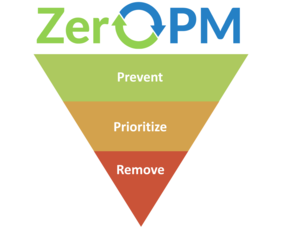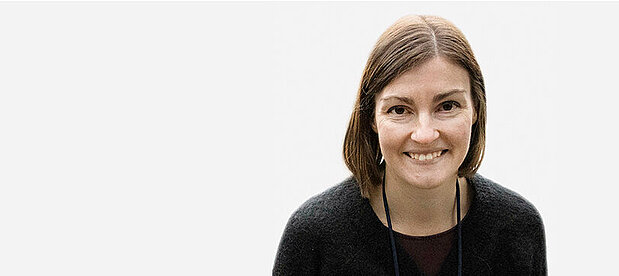The new EU research project ZeroPM aims at zero pollution from persistent, mobile substances - An important contribution to the protection of drinking water resources
Persistent, mobile (PM) substances are being recognized as serious threats to the safety of water resources. In many cases, drinking water supplies have to be purified using expensive technologies because of contamination by PM substances. The most famous example of PM substances are per- and polyfluoroalkyl substances (PFAS), but there are numerous others. This worldwide problem has triggered new policy and monitoring actions and the European Green Deal contains a broad initiative for chemical and water regulations for PM substances.
As part of this effort, a new, wide-reaching European Research project, Zero Pollution of Persistent, Mobile substances, ZeroPM, will start in autumn 2021. Funded under the H2020 call "Building a low-carbon, climate resilient future: Research and innovation in support of the European Green Deal: Innovative, systemic zero-pollution solutions to protect health, environment and natural resources from persistent and mobile chemicals", ZeroPM includes 15 partners and will run for 5 years. The project is led by the Norwegian Geotechnical Institute with Dr Sarah Hale as the Project Coordinator and Prof. Hans Peter Arp as co-coordinator.
ZeroPM will interlink and synergize prevention, prioritization and removal strategies to protect the environment and human health from PM substances. To do this, ZeroPM will establish an evidence-based multilevel framework to guide policy, technological and market incentives to minimize use, emissions and pollution of entire groups of PM substances.
ZeroPM will deliver policy improvements, an increase in business opportunities and competitiveness, an improved livelihood for EU citizens and beyond state of the art methods, to prevent regrettable substitution and regrettable remediation of PM substance groups. ZeroPM will be the pathfinding project enabling the ambitions of the Chemical Strategy to become an on-the-ground reality, supporting the movement towards a zero pollution, toxic-free environment.
TZW will lead the work package "Technical solutions, method development and analytics" in the ZeroPM project. This includes experiments on the removal of short-chain PFAS and other PM substances from water by an innovative combination of activated carbon filtration and ion exchange. Regeneration of materials and electrochemical degradation of PM residues also receive attention. In tests both in the laboratory of the TZW and on a pilot scale in two waterworks, the suitability of the processes for drinking water treatment and for the treatment of a reverse osmosis concentrate to prevent the discharge of these substances into the environment is being tested. In addition, comparative studies on the retention of these substances with nanofiltration and reverse osmosis membranes are carried out at a laboratory facility at TZW.
The PFAS sum parameter "Total Oxidizable Precursor" (TOP) Assay, which may gain importance in the future in the context of the new EU drinking water directive, is further optimized by TZW. Furthermore, investigations on the influence of different sample preparation techniques on PFAS concentrations in aqueous eluates are carried out. ZeroPM also includes the development of new analytical detection methods for other PM substances and their application in monitoring programs at various waterworks. This will allow evaluation of how technical removal is possible for these new substances.
Since July 2023, work package 8 "Dissemination and Communication" is also led by TZW. This WP places an emphasis on spreading and embedding the results from ZeroPM with relevant stakeholder groups. ZeroPM works closely with policy makers and enforcers, chemical manufacturers and users, water utilities, companies working with technical solutions, NGOs, academic organisations, society and the media to ensure that results are of relevance. ZeroPM will be holding three broad workshops over the course of the project focusing on Prevention, Prioritization and Removal.
This project is funded by the European Union under the Horizon 2020 Research and Innovation Programme, grant agreement number 101036756.
Publication:
Frank Thomas Lange, Finnian Freeling, Bernd Göckener: Persulfate-based total oxidizable precursor (TOP) assay approaches for advanced PFAS assessment in the environment – A review, Trends in Environmental Analytical Chemistry, Volume 44, Dec. 2024

![[Translate to English:] Prüfstelle-Produktprüfung_Teststand Test centre and product testing](/fileadmin/_processed_/0/9/csm_TZW-Karlsruhe_Pruefung_Geraete-Teststand_377188946c.jpg)


























